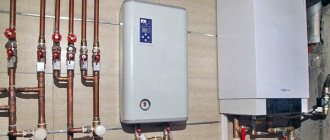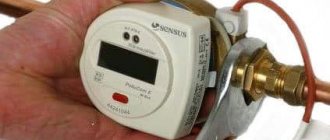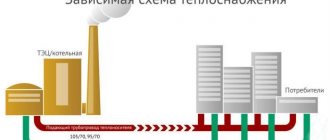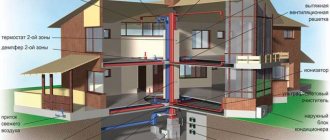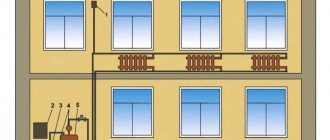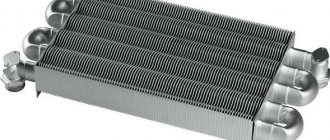Residents of apartments are deprived of choice, and, as a rule, they do not have a question about what is cheaper to heat the house: gas or electricity. However, such a dilemma often occupies the minds of owners of private buildings. After all, the choice of one of the options determines not only the ease of operation of the heating system, but also the amount of monthly cash costs. If you choose at random, without considering the advantages, disadvantages and cost of both heating options, there is a chance of making a mistake, the elimination of which will bring large costs in the future.
Electric heating
You may be interested in: Determination of financial results: accounting procedures, accounting entries
This method involves the use of boilers, which are divided into two types, namely floor-mounted and wall-mounted.
The operating principle is quite simple. The steel tank contains tubular electric heaters that convert electricity into heat. These elements heat the coolant, and then, thanks to the circulation of water, the building is heated.
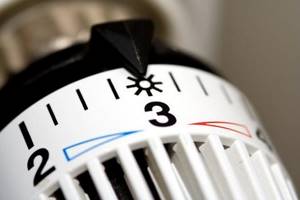
Advantages of electric heating
You may be interested in:Best car insurance companies: rating
Any method of heating a room has certain advantages:
- Availability and ease of installation. These are perhaps the most important advantages. In addition, there is no need to coordinate the project, which further reduces the financial costs of implementing the idea.
- Easy to maintain. Agree, during operation it becomes important not only what is cheaper: gas or electricity. Equally important is saving time due to the fact that this type of boiler is easy to maintain. In particular, there is no need to carry out preventive maintenance or periodic cleaning of equipment elements.
- Environmentally friendly. Electricity is one of the environmentally friendly fuels, which allows you not to worry about the safety of the environment. However, it is worth noting that not all home owners pay sufficient attention to this issue.
Double-circuit boiler equipment
For heating a private home, double-circuit electric-gas equipment is very suitable. This heating has its advantages:
- reduced gas consumption;
- If we consider separately the generator of a double- and single-circuit boiler, then the cost of the first is higher. But when comparing the cost of heating equipment for a single-circuit and combined boiler, the price is lower;
- heating of water in the water supply and heating systems occurs simultaneously;
- Can be installed in a boiler room or kitchen. But there is a need to follow all safety and installation rules.
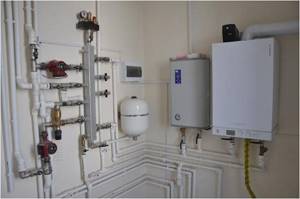
Gas and electric boiler
Disadvantages of combined heating:
- you need to balance the costs of gas, electricity and water;
- when the water flow decreases, gas is supplied with the same force. Consequently, the temperature rises;
- if the pressure in the system changes, then reconfiguration of the device is required;
- equipment requires periodic preventative maintenance. Due to scale deposits on the heating elements, there is a need to clean them;
- When using hot water for half a minute, the water in the system will cool down.
Disadvantages of heating with electricity
You should not ignore the disadvantages of this type of heating in search of an answer to the question of what is cheaper: gas or electricity. Let's list them briefly.
- First of all, it is expensive. In Russia, electricity is considered the most expensive type of energy.
- It is necessary to maintain constant power to ensure the operation of the boiler.
- Power outages that result in the inability to heat the living space.
- Inconvenient to use. Experts assure that the use of electric heating is an irrational idea for owners of houses whose area exceeds one hundred square meters.

Adviсe
The choice of suitable fuel is influenced by the total area and level of energy efficiency of the house, the average temperature and length of the heating season, access to energy resources and tariffs, as well as restrictions on the allocated electricity capacity for private needs.
“If none of the proposed options has a clear superiority over the others, then you can resort to combining them.
Meanwhile, under equal conditions, the optimal solution would be to use main gas, despite the impressive investments at the initial stage. If it is not possible to connect to the gas pipeline, then the most rational option for larger houses would be to install a gas holder, while for smaller areas gas cylinders are sufficient. Electricity is a convenient option, but if there are no incentives to pay for it, then in the end it will be the most expensive heating method, despite the minimal cost of connection,” advised Viktor Timokhin. The bar chart compares the relative cost of the initial investment and subsequent maintenance of popular heating sources. The data applies to an insulated country house with an area of 150 square meters. m in the Moscow region with a heating season from October to May. Compiled and sent by Viktor Timokhin
Gas heating
Gas is considered an energy-intensive fuel, the combustion of which releases a considerable amount of heat. Modern heating boilers are characterized by high efficiency, compact size, autonomous operation and ease of maintenance.
However, you need to understand that the boiler itself will not be able to cope with the function of heating the room. This will require the creation of a heating system, which, in addition to the boiler, will include aluminum or cast iron batteries connected by pipes through which water circulates.
Equipment profitability
Now let's look at the difference in gas and electric heating, not only from the point of view of operating costs, but also from the point of view of the profitability of the equipment. As noted above, the starting investment in heating apartment No. 1 amounted to 35 thousand rubles, of which 15 thousand were spent on the boiler itself. All elements of the water heating system, with the exception of pipes (although they do not last forever) have a limited resource. In addition, it is necessary to carry out annual maintenance of the gas boiler, and in the worst case, also repair it. According to statistics, gas boilers have to be overhauled or completely replaced after 7-10 years. Moreover, expensive branded boilers are not a panacea. They also break down, and their out-of-warranty repairs are much more expensive. However, whether it breaks or doesn’t break is a matter of chance, so we won’t take breakage into account. Let's just note this as an existing risk factor and a likely cost item. Electric convectors can also break, but their cost is incomparably lower than that of gas equipment, and they break less often, especially branded ones.
Starting costs for heating equipment for apartments No. 1 and No. 2 amounted to 35 thousand and 6 thousand rubles, respectively. It follows from this that the owners of apartment No. 2 saved 29 thousand rubles, which they can spend on paying for electricity. This amount is enough to buy 7,232 kW, which is enough for 3 heating seasons. During this time, apartment No. 1 will spend about 10 thousand rubles on gas, which gives reason to give apartment No. 2 another heating season as a gift. And only after 4 years of operation of the heating equipment, the heating systems of both apartments are leveled, which is called “zero”. Further, apartment No. 1 receives net savings... However, savings are only possible if the gas boiler works flawlessly. If it has to be replaced, the payback of the system will be extended for another couple of years.
What does thermal modernization give?
The owner of apartment No. 2 (with electric heating) decided to spend less on heating next year and to do this, insulate the northern outer wall of the apartment. The area of this wall was 17 m². This is the only solid wall (no windows) in the apartment. The other wall had a balcony block and a window in the kitchen, so insulation was not expected to have much effect. Insulation was carried out using the bonded insulation method using polystyrene foam 50 mm thick. As a result, the total heat transfer resistance of the wall was doubled and amounted to 2.0 m² °C/W. But the owner of apartment No. 1 did not want to insulate the wall, calculating that this investment in his case would pay off in at least 10 years. How did insulation affect it?
In December 2013, 500 kW of electricity was spent heating apartment No. 2, and apartment No. 1 consumed 150 m³ of gas. Translated into money, this is 2005 and 674 rubles, respectively, i.e. the difference was no longer 3.5, but 3 times, i.e. decreased by 14.3%.
The owner of apartment No. 2 spent 8 thousand rubles on thermal modernization. The payback period for this investment, according to approximate calculations, will be about 5 years. But the benefit in this case is not only in reducing electricity costs, but also in reducing the load on the power grid.
In the example given, the comparison was made in one-room apartments, but if these were three-room apartments, the difference between costs could be greater, since more electric heaters or an electric boiler with a water heating system would be required. In addition, in order to heat a three-room apartment with electricity, it would be necessary to lay a dedicated line, because... The household network is not designed for loads created by simultaneously switched on 3-4 electric heaters or an electric boiler with a power of more than 10 kW.
Conclusion
: the actual difference between the costs of gas and electric heating is
3-3.5 times
, and not 8-9 times.
If we take into account the cost of servicing gas equipment and its planned replacement in the future, then the actual difference can be reduced to 2-2.5 times
. But thermal modernization pays off faster with electric heating than with gas heating. That is why, in the absence of a connection to the main gas, it is recommended that country cottages be well insulated.
Advantages of gas heating
This method of heating a room certainly has certain advantages. Namely:
- Cheapness. The use of this type of fuel is beneficial from an economic point of view. Heating with gas is cheaper than with electricity. This is why the initial costs are recouped as the equipment is used.
- Environmentally friendly. Experts assure that gas combustion does not produce harmful substances that can pollute the environment.

What is cheaper: gas or electricity?
The answer to this question is obvious. Many people know that gas heating is cheaper. This justifies the high popularity of this type of fuel in Russia.
If we make a comparison, it turns out that electricity costs approximately twice as much as the energy that can be obtained by burning liquefied gas.
Now you know which is cheaper to heat: gas or electricity.
If your choice is the second option, be prepared for the fact that the amount on your utility bill will be impressive. Especially during cold periods of the year, when you have to heat the room to a more or less comfortable temperature.
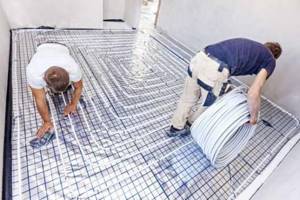
Device comparison
Moving away from energy efficiency parameters, you need to remember the advantages and disadvantages of both devices. Among the advantages of electrical equipment are the following features:
- Wide power range (2-60 kW). From these you can choose models up to 20 kW, suitable for individual heating. Thus, the miniature Tenko economy KE 6_220 with a power of 6 kW will heat the average apartment up to 68 m². There are also more powerful 30 kW options, such as Vaillant eloBlock 28 kW with a heating area of about 200 square meters. Such units satisfy the needs of industrial and commercial facilities.
- Environmental friendliness is another advantage of the technology - it does not produce emissions of combustion products.
- Variability: electric boilers heat water. Such devices are easy to operate, silent, reliable, and durable.
As disadvantages, we cannot keep silent about:
- High amounts of energy payments.
- Outlet dependencies.
- Electrical wiring required.
If we talk about gas analogues, then they also have their own characteristics. So, the advantages of gas-powered boilers:
- The power of gas equipment is enough to heat objects of colossal size. Model NOVA FLORIDA CATU32MF99 will heat 1000 m2!
- Gas in automatic boilers is supplied continuously; they will turn off as soon as the fuel supply stops (which happens infrequently, unlike the supply of electricity).
- Easy to use. The equipment is designed for long-term operation.

There were some downsides:
- A complex installation that comes with many nuances. You will have to touch on the technical side of the issue and the bureaucratic side, drawing up the appropriate documentation, permits, and approvals.
- The need to equip a chimney that removes waste substances.
- The need for good ventilation and separate access to the street.
- There is no benefit from installing such boilers in rooms up to 100 m2.
Let's summarize what has been said. Our calculations have finally decided: the efficiency of an electric boiler is beyond doubt, although its gas counterpart with a condensing mechanism competes with it in energy efficiency.
Don’t forget about the increased efficiency of an electric boiler - it is 25% higher than that of a relatively cheap gas device, for example Ferroli DivaProject. All this says one thing: feel free to choose an electrode boiler if you need to heat an ordinary apartment up to 100 square meters, and you won’t regret it!
Related video: Heating a home is four times cheaper than a gas boiler

